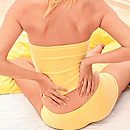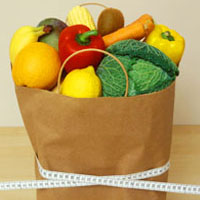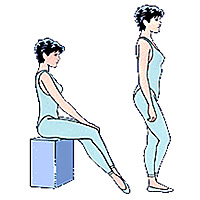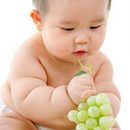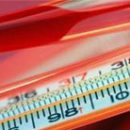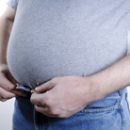What is the urine-free diathesis? As manifests itself and how this state is treated? What kind of healing diet should be applied? Read in this article.
Content
Middle diathesis
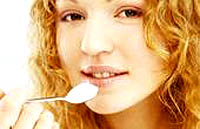 Piece diathesis (hyperuricuria or hyperikozuria, ulatura) is characterized by a very abundant deposition of urine urinary acid, urinestic salts (urates) in precipitate, which are kept in a dissolved state. Urine has a persistent and significantly increased acidity, which is crucial in the process of stone formation. The concentration of uric acid in the urine plays a minor role in the formation of stones. The precipitated precipute salts of uric acid has a form of red sand.
Piece diathesis (hyperuricuria or hyperikozuria, ulatura) is characterized by a very abundant deposition of urine urinary acid, urinestic salts (urates) in precipitate, which are kept in a dissolved state. Urine has a persistent and significantly increased acidity, which is crucial in the process of stone formation. The concentration of uric acid in the urine plays a minor role in the formation of stones. The precipitated precipute salts of uric acid has a form of red sand.
Middle diathesis is considered as a pathological process associated with high-quality and quantitative change in urine status.
The formation of uric acid is the final staging of protein (purine) exchange in the body. At the same time, the urnessee diathesis occurs in disruption of protein exchange, when the decay of proteins is enhanced by the amount of uric acid in the body as a whole, and in the urine, in particular, significantly increases. This occurs when food is eaten products containing a large amount of purine bases (meat food). Excessive eating meat sharply increases urine acidity, strengthens diathesis, contributes to falling into a precipitate of flakes of flourishing muthes, uric acid crystals, urates.
Piece diathesis often accompanies gout, common metabolic disease, also associated with a violation of purine metabolism in the body. According to the existing observations of 15—20% of patients with gout simultaneously observed urolithiasis. However, the gout and the uricultural diathesis — Two different diseases. For gouts, a decrease in the content of uric acid and its salts in the urine is characterized, whereas with uralism there is an increase in the concentration of uric acid and urates in the urine.
Healing diet with uctra diathesis (ultrauria)
Therapeutic nutrition provides for the restriction of introduction with food of purine bases (meat food), a decrease in urine concentration by increasing the diurea (increasing the daily amount of urine) and urine sickness due to the use of products, rich in calcium and alkaline metals.
The energy value of the diet must correspond to the body's energy consumption. However, the number of proteins in the diet should be somewhat limited (0.8—1 g per 1 kg of body weight), as they contribute to the formation of uric acid.
It is necessary to take care of the introduction of a sufficient number of vitamins into the diet. In particular, the lack of vitamin A in the body contributes to the formation of stones in the urinary tract. In order to increase the diurea (increasing the daily amount of urine) and reduce the concentration of uric acid and urates in the urine, an increase in the amount of fluid injected (up to 2—2.5 l). The need to limit the salt is associated with the property of the latter to delay the liquid in the body.
Showing the enrichment of diet salts of potassium, which are the richest vegetables and fruits. Potassium salts have a diuretic effect, thereby contributing to the decrease in the concentration of uric acid and urates in the urine.
In order to assume urine, it is necessary to take care of the use of a sufficient amount of products that are rich in calcium and alkaline metals: milk and dairy products, vegetables, fruits, berries and their juices, alkaline mineral water («Borjomi», «Smirnovskaya», «Slavyanovskaya» and etc.).
To be eligible from diet rich in purines. The number of products rich in purines and subject to restriction include legumes (peas, beans, lentils, beans), fish (sprats, sardines, sprat, cod, pike perch, pike), offal (kidneys, liver, brains, lungs), mushrooms ( White, champignons), meat and fish broths, jelly, some vegetables (sorrel, spinach, radishes, asparagus, cauliflower), meat (pork, veal, beef, lamb, goose, chicken), sausages (especially Livel sausage), yeast, oat groats, polished rice, sauces (meat, fish, mushroom).
Alcoholic beverages, pickles, smoked, canned food, sharp snacks, spices and spices (mustard, pepper, horseradish) are prohibited.
It is recommended predominantly milky-vegetable diet. Milk and dairy products, vegetables (except for prohibited), fruits (pears, apricots, peaches, grapes, cherries, quince, black currant, apples, with the exception of Antonovskiy), flour and cereal products, jam, honey, sugar, creamy and vegetable oil, weak tea; From Spices — Vinegar, bay leaf. Use 2 is allowed—3 times a week of meat and fishes in boiled form.


